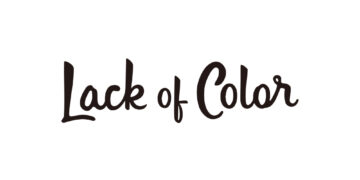When it comes to skincare, there are countless ingredients that claim to offer amazing benefits for your skin. Two of the most talked-about ingredients in the beauty industry are retinol and retinal. Both are derived from vitamin A and are hailed for their ability to address various skin concerns, including wrinkles, fine lines, and hyperpigmentation. However, many people often confuse retinol and retinal, thinking that they are the same thing. In reality, there are some key differences between these two compounds. In this article, we will delve into the dissimilarities between retinol and retinal and help you understand which one may be better suited for your skincare needs.
Retinol and retinal are both members of the retinoid family, which encompasses various forms of vitamin A derivatives. They are commonly used in skincare products due to their ability to promote cell turnover, stimulate collagen production, and improve the overall texture and appearance of the skin. However, their chemical structures and potency differ, leading to varying effects on the skin.
Retinol is a well-known and widely used ingredient in many skincare formulations. It is a precursor to retinaldehyde, which is further converted into retinoic acid, the active form of vitamin A that is used by the body. The conversion of retinol into retinoic acid occurs naturally within the skin cells. Retinol is often regarded as a gentler alternative to retinoic acid, making it suitable for individuals with sensitive skin.
One of the main advantages of retinol is its stability. It is less sensitive to light and air exposure compared to retinal, which makes it more suitable for over-the-counter skincare products. Additionally, retinol tends to have a slower rate of conversion into retinoic acid, resulting in a milder and gradual effect on the skin. This slower conversion process may lead to delayed results but can also minimize the potential for irritation or side effects.
On the other hand, retinal, also known as retinaldehyde, is a more potent form of vitamin A compared to retinol. It is closer to retinoic acid in terms of its chemical structure and effectiveness. Retinal is the direct precursor to retinoic acid and requires only one additional conversion step within the skin cells to become active. Due to its increased potency, retinal is often considered a step up from retinol in terms of efficacy.
While retinal is more potent, it can also be more irritating to the skin, especially for those who are new to using retinoids. The increased potency may lead to faster and more noticeable results, but it also heightens the risk of side effects such as redness, dryness, and flakiness. It is important to introduce retinal gradually into your skincare routine and monitor your skin’s response to avoid any adverse reactions.
The choice between retinol and retinal ultimately depends on your skin’s tolerance and the specific skincare concerns you want to address. If you have sensitive skin or are new to using retinoids, starting with retinol can be a more gentle approach. It allows your skin to build tolerance over time and minimizes the risk of irritation. Retinol can be an excellent choice for individuals looking to improve the appearance of fine lines, wrinkles, and uneven skin tone.
However, if you have already used retinol and are looking for a more potent option, or if you have resilient skin that can tolerate higher concentrations of retinoids, retinal may be worth considering. Its closer resemblance to retinoic acid means it can provide quicker and more noticeable results, especially in terms of reducing the appearance of fine lines and wrinkles, improving skin texture, and addressing hyperpigmentation.
It is crucial to note that both retinol and retinal can increase the skin’s sensitivity to the sun. Therefore, it is essential to incorporate a broad-spectrum sunscreen into your daily skincare routine when using these ingredients. Sunscreen will help protect your skin from harmful UV rays and prevent potential sun damage.
In conclusion, while retinol and retinal share similarities as retinoids derived from vitamin A, their chemical structures and potency differ. Retinol is a milder form that requires multiple conversion steps to become active, making it suitable for sensitive skin types. Retinal, on the other hand, is more potent and closer to the active form of vitamin A, providing faster and more noticeable results but also posing a higher risk of irritation. Choosing between retinol and retinal depends on your skin’s tolerance and the desired level of efficacy. Whichever option you choose, it is essential to introduce these ingredients gradually and protect your skin from sun exposure. Consultation with a dermatologist can also help determine the most suitable retinoid for your specific skincare needs.



No Comments
Leave Comment